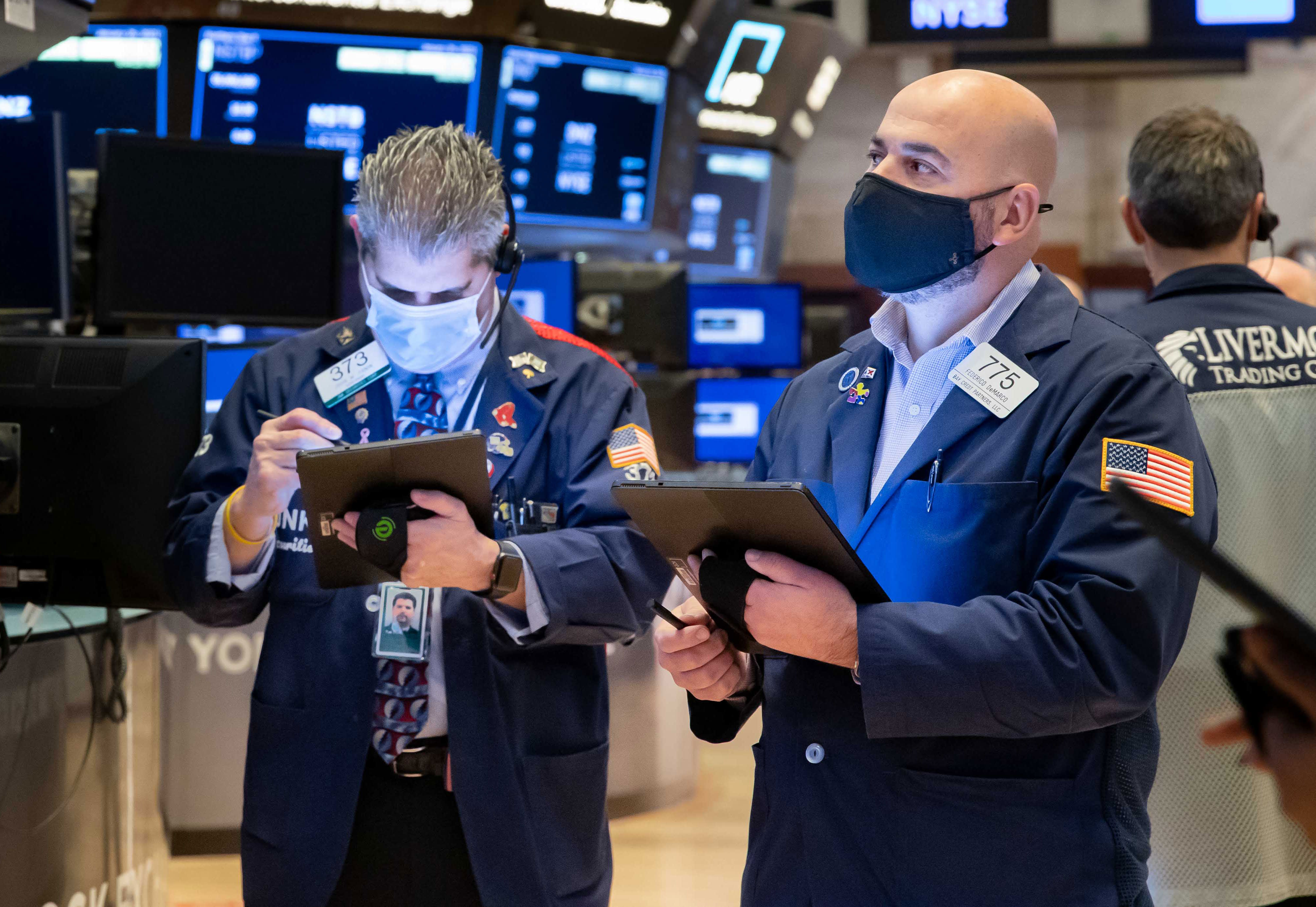Dow drops more than 600 points for its worst day since October, S&P 500 goes red for the year

U.S. stocks fell sharply on Wednesday amid disappointing earnings, while concern about heightened speculative trading activity deepened.
The Dow Jones Industrial Average lost 633.87 points, or 2.1%, to 30,303.17 for its worst day since Oct. 28. The S&P 500 dropped 2.6% to 3,750.77, slipping from a record high and suffering its biggest drop in three months. Wednesday’s steep losses wiped out its 2021 gains for the S&P 500 and it’s now down 0.1% on the year. The tech-heavy Nasdaq Composite slid 2.6% to 13,270.60.
Boeing fell nearly 4% after its earnings report showed 2020 net loss hit a record of $11.9 billion amid the 737 Max grounding and the coronavirus pandemic. Shares of AMD tumbled more than 6% even after the chipmaker posted revenue and earnings that beat Wall Street’s already high expectations.
Intensifying speculative behavior among retail investors is causing concern. Heavily shorted names, including GameStop and AMC Entertainment, continued to be pushed higher by amateur day traders in online chat rooms. Some investors are worried about mounting losses by hedge funds spilling over to other areas of the market as those funds sell other securities to raise cash. Investors are also concerned the speculative behavior is a sign the market is overvalued and a pullback is near.
“We’ve run up so much and this is healthy profit taking,” said John Davi, founder and CIO of Astoria Portfolio Advisors. “There has been a tremendous market melt-up in the past two months. When the market goes up parabolically, you will see speculative behaviors from a lot of investors.”
GameStop shares exploded again, more than doubling on Wednesday. CNBC learned Melvin Capital, the hedge fund targeted by the retail investing crowd on Reddit had sold out of its short position. More hedge funds were facing big losses because of their losing short positions, CNBC’s David Faber reported on Wednesday.
“Market participants have watched the GME phenomena with curiosity and amusement, but the days-long surge in it is eroding market confidence and creating some positioning-driven dislocation,” Adam Crisafulli, founder of Vital Knowledge, said in a note.
AMC soared more than 300% Wednesday. More than one billion AMC shares traded in the name during the session.
TD Ameritrade midday Wednesday said it put in place restrictions on certain transactions involving GameStop and AMC “in the interest of mitigating risk for our company and clients.”
Stocks fell as a “surge in heavily shorted stocks like GME and others [is] creating substantial margin calls for funds short these positions,” said FundStrat’s Tom Lee in an email. This “forced selling” by hedge funds is causing a bit of turmoil in the markets and likely leading all active managers to get into a risk-off mode, Lee said. A margin call is when a broker mandates an investor hold more cash to cover losses.
But the strategist added that the sell-off Wednesday was temporary and stocks would resume their upswing soon.
The Cboe Volatility Index, known as the VIX or Wall Street’s fear gauge, jumped above 30 on Wednesday, hitting its highest level since November.
“The Big Short” investor Michael Burry said in a now-deleted tweet Tuesday that trading in GameStop is “unnatural, insane, and dangerous” and there should be “legal and regulatory repercussions.”
Wednesday’s market pullback followed a strong rally to records on the back of optimism towards a smooth vaccine rollout and additional fiscal stimulus. The S&P 500 ended last year with back-to-back monthly gains, pushing 2020 returns to more than 16%.
The Federal Reserve on Wednesday kept interest rates unchanged near zero, while maintaining an asset purchasing program with at least $120 billion buying a month.
Microsoft gained 0.3% after reporting a stellar quarter. Sales grew by 17% on a year-over-year basis in its fiscal second quarter, while its cloud business accelerated.
Starbucks topped earnings estimates for the last quarter, but its U.S. same-store sales fell 5% amid rising cases of Covid-19. Shares of the coffee chain fell more than 6%.
Apple, Facebook and Tesla are due to report earnings after the closing bell. They represent three of the six largest companies in the U.S. by market cap, meaning fluctuations in their stock prices have an outsized impact on the performance of the broader S&P 500.




